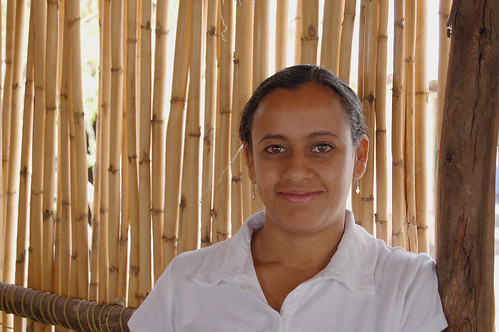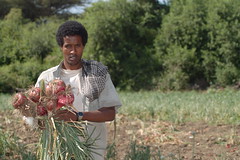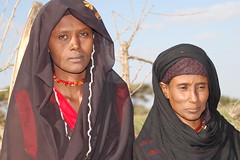by Heather Plett | Jul 23, 2008 | Leadership, navel-gazing
“To everything there is a season, a time for every purpose under the sun.” Ecclesiastes 3
I’m reading a book called “Leaving Church”. It’s a personal memoir about Barbara Brown Taylor’s experience of giving up the priesthood.
Though I didn’t realize the serendipity at the time, I bought the book with a gift certificate I’d gotten when I ended my tenure as an elder at our church. (No – in case any GNFers are getting worried – I’m not “leaving church”, I’m just stepping away from leadership.)
For everything there is a season. It’s time for me to step away and enter other seasons. Not only am I not an elder anymore (the highly skilled Krista is picking up the mantle), I’ve also given up doing announcements and welcomes. Basically, I’m stepping out of any leadership or public persona role and slipping into an “anonymous churchgoer” role. And that’s the way I want it for now.
It feels like a time for other things. I need a season for focusing on my writing a little more. Maybe a season for taking some art courses – pottery, painting, photography – I’m not sure what yet. Mostly, I’m hoping it will be a season for creativity. And maybe a little rest.
I’m not sure what other changes the coming year will bring. When I started this job, I’d told myself I would give it at least 5 years. After that, Marcel would be finished university and I might be able to consider other options. This is my fifth year. Marcel doesn’t have a full-time job yet, but he makes a pretty decent living as a substitute teacher.
I still love my job, and honestly? I could see myself quite happily spending another 5 years here if it came to that. I’m in no rush to leave. But I’m also ready to open myself up to new possibilities. I’ve done a lot of really amazing things in the 4+ years I’ve been here, and I’m pretty confident I’ve left a positive mark on the organization, so I could walk away if it felt right to do so.
At this point, though, I’m in no rush to move into anything new. I’m going to enjoy the summer, sign up for a class or two in the fall, and maybe find a little more time and space for some writing. And in the meantime, I’m going to say “no” to almost anything anyone asks me to do for church.
by Heather Plett | Oct 11, 2007 | Dad, Leadership
Today was a “fumbling” kind of day. I made mistakes. I communicated poorly. I might have jeopardized an important business relationship because I treated someone rather brusquely before I realized what I was doing. On top of that, I had to have a couple of tough conversations with people who work for me. Feelings were quite probably hurt.
The mantle of leadership felt too heavy on my shoulders today. It was the kind of day that made me wish (at least momentarily) that I could throw off the mantle and just count widgets for awhile. Maybe just for a day or two. At least then I wouldn’t have to make decisions or walk tenderly around relationships – I’d just count. Counting I can do. In fact I’m quite competent at it. 1. 2. 3… This leadership stuff… I’m just not feeling quite as competent today.
A few days ago, when I was cleaning up a corner of the basement for “the renovation project that will see my hair turning grey before it’s finished”, I came across an envelope addressed to me in my father’s unmistakable handwriting. I think there were only two or three times I ever got anything in the mail from my dad. I wrote about another one of those times here. I could never throw any of them out, but I don’t quite know what to do with them, so they have a way of popping up now and then when I’m cleaning. When I got home from work today, I re-read the one I’d most recently found. I needed it.
On a little pink scrap of paper (something that had been discarded from the Auction Mart where he worked – my dad was into recycling long before it was trendy), was this very brief note.

“The father of the righteous shall greatly rejoice: and he that begetteth a wise child shall have joy of him.” Proverbs 23:24
I don’t remember what preceded this note. The postmark says 1999, but I can’t remember if there was something significant that happened that year that made my dad send me a note that, in his own way, said “I’m proud of you. You are a wise child.” Perhaps I’d accomplished something that he wanted to honour me for. Or perhaps it was a time when I was filled with self-doubt and he thought I needed to hear that I was capable and that he believed in me.
I don’t remember how it made me feel to get that simple note in the mail. I’m sure it choked me up a little. I only know how it felt to find it this weekend, four years after he died. And I know how it felt to read it again after a day that left me feeling anything but “wise”.
I think I’ll frame it and put it on my desk. Tomorrow when I go back to work, I’m going to need a little boost to help me move forward. If my dad believed I was wise, then who am I to doubt it?
by Heather Plett | Feb 23, 2007 | Leadership, personality, sin
Lest you all think I’m just strutting around bragging and calling myself phenomenal (no that’s NOT what I was suggesting we should do in the last post), I want to offer what I think is the other side of the coin. Yes, I think that we should embrace our giftedness and believe that we were created with potential and beauty, BUT…
I think there’s another side too. We may be phenomenal, but we are also phenomenally flawed. And what I learned recently is that we have to embrace both sides of the coin. Let me tell you about a personal journey I went on in the last few years…
One day (I was going to say it was during my “40 days ’til 40” contemplation phase, but it might have been longer ago than that), I stumbled upon a book called “The Gift of Being Yourself – The Sacred Call to Self-Discovery” by David G. Benner. At first, I just thought it was another “believe in yourself and recognize your gifts, blah, blah, blah” kind of book and I really wasn’t expecting much from it. But what I read when I first browsed through it intrigued me so I stuck with it.
Near the beginning of the book, Benner quotes John Calvin as saying “There is no deep knowing of God without a deep knowing of self and no deep knowing of self without a deep knowing of God.” Hmmm. Interesting. So there’s spiritual value in the navel gazing I’d taken up when 40 started knocking on my door. Benner also says “Being most deeply your unique self is something that God desires, because your true self is grounded in Christ. God created you in uniqueness and seeks to restore you to that uniqueness in Christ. Finding and living out your true self is fulfilling your destiny.” Okay, this seemed worth considering, so I read on.
The first part was interesting, and I found myself nodding my head now and then, but it wasn’t until I reached chapter 4 that I felt like there was something in this book that I needed to spend time learning. That’s where Benner throws the hard-ball. “Knowing ourselves as we really are inevitably brings us up against what the Bible calls sin.” Okay, this was getting a little tougher. So this wasn’t just going to be a “touchy-feeling pat yourself on the back for how great you are” kind of journey. From there, the book goes into how we should contemplate, pray about, and try to analyze our “core sin tendencies” – those flaws that lie deep down at the root of who we are.
Core sin tendencies? This was a new concept for me. I’d heard about sin all my life, but I’d never really considered that I might have a propensity for certain sins over others. Over the years, I’d spent a fair bit of time trying to figure out my giftedness, my personality, my leadership styles, and all those other feel-good kind of self-discovery things that are part of almost every staff retreat or leadership workshop anywhere, but I hadn’t really flipped my heart over and looked at the dark side. Maybe that was the fatal flaw in my navel-gazing phase.
“Genuinely knowing yourself as you are known by God can be quite frightening,” says Benner. Yup, that’s right, I was getting a little afraid of looking around those dark corners. Who knows what was going to pop up? “But if God knows you and still loves you deeply, there is hope that you can do the same.”
When I closed the book, I knew it was time to take another step in my journey. Gulp. But I don’t wanna know my flaws! C’mon God – can’t we just stay out here in the light? Hmmm… God whispered “Nope. Trust me. This is gonna hurt for awhile, but it will be worth it.”
So I started thinking, praying, reading my Bible, and searching for those pesky skeletons that had become firmly entrenched in the closets of my soul. It wasn’t pleasant, but I did it. I even attended a twelve-step program for awhile, trying to figure out what things I had to overcome and what I had to admit to myself to get there.
And what did I find out? Well, at the time, it became clear to me that there were 2 things that I needed to work on – gluttony and slothfulness. The more I thought of it, the more I realized I had let many things in my life suffer because of these two things. My relationships were harmed, my potential was stifled, my body wasn’t well cared for, my house looked like a constant warzone, and I was busy ignoring the fact that there was any problem.
I spent a fair bit of time addressing those things – I cleaned out my closets literally and figuratively. If you go back into my blog archives, you’ll find lots of posts about the messes that I tackled. Back then, you probably didn’t know why there was such urgency to clean up a whole lot of mess in my house and let go of some of the possessions I’d let into my life because of pure greed, but it all had something to do with this journey.
One day, when I looked around and realized the skeletons had shrunk and my home was looking liveable again, I felt this incredible feeling of peace come over me. Trust me, I was still a LONG way from fully addressing my sin tendencies, but at least I was no longer afraid to stare them in the face and challenge them to “get thee behind me.”
I’m still learning this stuff, and on almost a daily basis, I slip back into old tendencies, but the journey has definitely been worth it. So when I say that I am going to believe that I am phenomenal, it is only because I also recognize that I am flawed and my only hope of being phenomenal is if I am humble and put my trust in the creator who knows what I’m capable of.
And now, it’s time to pack my bags and head to Gimli where I’m teaching a bunch of dentists and dental staff about how they can use the “Six Thinking Hats” to make decisions and work more effectively. Here’s hoping I don’t screw up.
by Heather Plett | Feb 22, 2007 | Leadership
A few nights ago, I went to a Ruthie Foster concert, and since then the song “Phenomenal Woman” has been going through my mind. It’s based on a Maya Angelou poem. You can hear it here (click on “Phenomenal Woman” on the right) and you can read the poem here. To me, Ruthie Foster is the epitome of a phenomenal woman – beautiful, sexy, glowing, confident, funny, and with a rich voice that soars through the rafters.
I like it. I like thinking of ourselves as phenomenal. I think too many of us have been raised to believe that we shouldn’t “toot our own horns” or “strut our stuff”. Was it just me, or did you grow up thinking that it was sinful to believe in yourself or be too confident? After all, if we believed in ourselves, then we wouldn’t rely on God enough, right?
Instead, we’ve learned patterns of self-deprecation and low self-esteem. “Oh, I’m not good enough” or “I really don’t have any talents worth sharing” seem to be common phrases on the lips of too many people. (Perhaps it’s especially true for Christians?) I think that’s the OPPOSITE of what God wants to hear from us, because he/she can’t work through us if we doubt our own abilities. Confidence is not sinfulness, it’s trusting that our creator knew what he/she was doing when we were made.
Like Ruthie Foster, I think it’s time to embrace our “phenomenalness”. Oh, I’m not saying we should all start bragging about ourselves, or taking on overly-inflated opinions of ourselves, but what’s wrong with believing that God made us beautiful and talented and phenomenal? Sure we’re all flawed – that’s a given – but we all have within us the seeds of great potential. Believing otherwise is doubting God’s design and ability to work through us.
So today, I am going to believe that I am PHENOMENAL! Truth is, this month it’s not hard to believe. I don’t know if it’s just because I’ve been more open to new possibilities, or if my two weeks in Ethiopia inspired me, but all kinds of opportunities and inspired ideas seem to be “dropping in my lap”. (Or perhaps jumping out of a plane last fall did something to unleash the inner boldness in me.)
Usually February gives way to the doldrums, but this past month, I’ve had lots of chances to use the gifts that I most love to use. I’ve been hired for 2 freelance jobs, both of which entail facilitating workshops on things I love to talk about – like leadership and creative thinking. I also facilitated an all day staff retreat (not my own staff), and got my first chance to fly by the seat of my pants and prove that I could do it (I saw the agenda 15 minutes before launching into the day’s discussion). I had a chance to speak in church a few weeks ago – another thing I quite enjoy. I’ve also had a few writing opportunities, and will see some of it appear in print soon.
And then this week, I stumbled onto one of the most inspired ideas I’ve had in a long time. Part of my day-job involves leading the fundraising team. I don’t have much of a fundraising brain, so it’s good that my staff do most of that kind of work. But I’ve just managed to come up with a new campaign that might revolutionize the way we raise money PLUS it involves encouraging people to do more (lifestyle changes, etc.) than just give money. (I can’t tell you too much about it because it’s still in the seedling phase.)
There must be something in the air, because I feel PHENOMENAL! (Sorry – am I bragging too much? I haven’t entirely let go of the idea that it’s NOT okay to talk about myself like this. In fact, I almost deleted this post.)
This is all really exciting stuff for me, because in a few years, I hope to leave a “nine-to-fiver” job behind and do freelance consulting, facilitation, and writing – just the kind of stuff I’ve gotten to do in the last month. Woohoo!
How about you? What makes you feel phenomenal?
by Heather Plett | Feb 5, 2007 | inspiring people, Leadership

“Women can’t think.” That’s what Elizabeth Milton was told the first time she visited the Afar Region. She’d been recently hired by Support for Sustainable Development, a non-profit organization with a mission to help the Afar people build more sustainable livelihoods in the drought-prone Afar region of Ethiopia by building water diversion projects to irrigate newly developed farmland. The Afar people are traditionally nomadic people who follow their livestock from one grazing area to the next. With drought occurring increasingly more frequently, however, and more and more people and livestock competing for the same forage space, their livelihoods are becoming less viable every year.
The men of the local village had gathered to meet with Elizabeth to discuss the development of canals and irrigation systems. She asked to hear from the women, but was told in no uncertain terms that here in the Afar, women could not be trusted to have opinions or thoughts on important issues such as water resources. They could be relied on to do much of the manual labour, like hauling water, building houses, herding livestock, and providing food for their families, but they could not think. Men did the thinking for them.
“That’s why I decided to stay,” Elizabeth told me when I asked her what had motivated her to spend the last three years in a remote camp, far from her family and friends, in harsh desert conditions. “I had to prove to them that women really can think.” There was a twinkle in her eye when she said it.
At the base camp in the Afar region, Elizabeth leads a staff that varies from 50 to 80 people, depending on the stage of the project they’re working on. In addition to the paid staff, who fill roles such as agronomists, engineers, and construction site supervisors, there are hundreds of local labourers who dig ditches and build dams in exchange for food to feed their families. The project is impressive in its scale and it’s difficult to imagine what it would take to lead such an operation.

Elizabeth is not what you’d expect when you think of a bold female leader out to change the world. She’s petite and shy, with an easy smile on her attractive face. When we visited her and her team, at first glance she could easily have been mistaken for one of the kitchen staff. Demanding no special attention or honour as “the boss”, she quietly went about ensuring that we had cold beverages to refresh us after our journey, and could later be found grinding coffee and washing our dishes.
She’s only twenty-four years old, but already she’s done more to change the world than many people do in a lifetime. “I love my country,” she told me, when I asked why she’d pursued a career in development. “I know we are capable of great things. But we must first ensure that our people have enough to eat. If Ethiopia has any hope for the future, it has to be in its own people.”
Though she’s clearly passionate about her work, Elizabeth’s three years in the Afar have been fraught with challenges. There were multiple counts against her, in those early days. Not only was she a woman, she was young and seemingly inexperienced. In addition, she’s a Christian in a predominately Muslim region. Building trust among the locals took a considerable amount of energy and commitment. “It was very hard at the beginning,” she said. “Nobody really believed I could do it. I often felt like I was in over my head, and I was lonely. And I didn’t always believe it would work.” Plus, coming from another region of Ethiopia, she didn’t know the local language. In order to work with the Afar people, she had to first learn their language.
Despite the challenges, the marks of success of Elizabeth’s three years of leadership are not hard to find. First of all, there are the obvious signs, like an impressive water diversion system which consists of a well engineered water weir that redirects the water from the river, as well as miles and miles of irrigation ditches. All of this has been dug by manual labour. Where the water has been diverted and the crops have been planted, there are lush gardens that would be the envy of any gardener. While we were there, they’d just harvested some of the biggest red onions I’ve ever seen. There were also juicy tomatoes, spicy red peppers, and acres and acres of maize and grain.


The real success, however, goes much deeper than the harvest from the fertile, freshly watered soil. While we toured the gardens, we were introduced to two women who are members of the local water-users committee, which is now one of the most important governing bodies in the region. To understand how remarkable it is to have women playing these roles, you have to realize that before Elizabeth’s arrival, no woman had ever served in a leadership role in this region before.

“I like to think I influenced the people here,” says Elizabeth, who’s almost too modest to admit she’s changing the world. “They now believe that women can think. Before I came, they didn’t trust their women. But now that they see their bountiful crops, and they realize that this is partly because a woman lead them in this endeavour, they have begun to trust their wives and sisters to serve in leadership roles.”
Another sign of succes is the new village that’s recently sprung up around the SSD base camp. It’s a sign of trust and acceptance that the Afar people choose to be near the staff who brought change to their region. Often wary of Christians, particularly those who come from other regions of the country, these people have made a leap of faith moving in next door. New business has already begun to emerge as well. In a tiny shop in front of a woman’s home, you can now by fabric, candles, and various other household items. Another important sign of positive change is the increased enrolment in school. When SSD first began working in the region, only one child attended the local school. Now there are nearly fifty.
In the evening, after we’d visited the canals and field that had all been developed under Elizabeth’s leadership, we were invited to the village school where a group of young women and men gathered to perform their local dance. While we watched, several young school children clustered around Elizabeth. Affectionately, she put her arms around one of the young girls. It was a simple gesture, but to me it was the picture of hope.
In many ways that they don’t understand yet, the future looks much brighter for these young girls than it did before Elizabeth Milton arrived in their village. Some day, Elizabeth will be only a distant memory, but when they have opportunities to take on more and more leadership roles, they will have her to thank.

by Heather Plett | Nov 28, 2006 | Leadership, navel-gazing
Eight years ago, my supervisor at the time said something simple yet fairly profound in his assessment of me. He said that one of my strengths and flaws was my ability to see both sides of an issue. In his view, it was a strength in that I was able to understand people’s perspective and tend to refrain from being overly judgmental. But it was a flaw in that it held me back when it was time to make a decision and stand firmly on one side or another.
A few months ago, I had yet another annual performance review in a long line of annual performance reviews. As much as they’re necessary evils, I dislike them – both when I’m the one DOING the review (of my staff) and when I’m the one RECEIVING the review. I’ve had approximately 10-15 of them. I’ve done even more of them. I’ve grown weary of them. Partly it’s because they’re a little artificial and I think that people should be guided along a pathway on a day-to-day basis rather than face an annual assessment of how close to the path they’re staying.
I get along great with my boss, and mostly he said highly positive things about me, but one of the things he said about me has stayed with me because it reflected what I’d heard eight years ago. He said that sometimes I’m a bit too much of a “maybe” person – that I occasionally have trouble making a firm decision or seeing things as black or white, especially if it might negatively impact a person or group of people.
It’s true, it’s one of my greatest flaws. It’s also one of my greatest strengths. I am a leader and communicator partly because I can understand different people’s perspectives and can usually figure out the best way to get through to them and empathize with them wherever they stand. I can also find common ground in almost every disagreement. At the same time, I am held back in my leadership abilities because I am often not as directive or bold as I should be. I anticipate people’s negative responses to a decision (on one side or another), and so I hold back to avoid hurting them or causing dissent. I can usually see why something is a bad idea just as clearly as I can see why it’s a good idea. As a result, I get stuck in the middle of too many issues.
I think this strength/flaw explains why I prefer to be a “facilitator” rather than a “leader”. In my current job, I have to be a leader. I have to make decisions for a team, and every time I do, there are some people who disagree with me. I don’t enjoy it. I don’t like to “play the heavy”. I’d rather be the consultant they hire to help them come up with good ideas, help them see their way through impasses, and help them figure out how to strengthen their communication and build their teams. That way I can leave the decision-making up to someone else as I wander off to another project or task. That way, I can use my strength/flaw to its greatest advantage and nobody gets hurt.
The truth is, I want to embrace this piece of me, this strength/flaw. I want to embrace it and make it beautiful, so that it will in turn bring beauty to what it touches. I don’t want to be afraid to be bold, but I also want to be content with being a “maybe person”. Because sometimes the “maybe persons” are the most comfortable ones to be with in the middle of all these shades of grey. And sometimes, the “maybe persons” are the ones that lead us in the directions that feels right for all of us.







